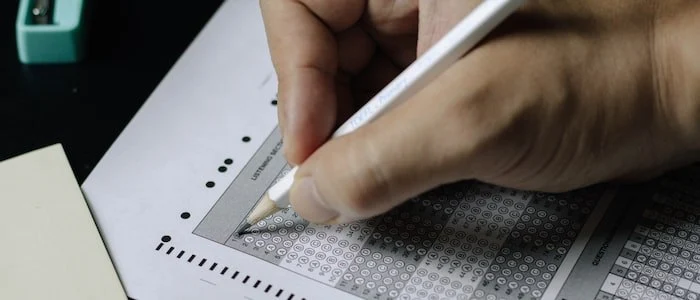Understanding IELTS Writing Task 2 Scoring

IELTS Writing Task 2 is a crucial component of the IELTS exam, assessing your ability to compose an academic essay with effective grammar, vocabulary, and structure. This article delves into the scoring process for Writing Task 2 and provides examples to illustrate the scoring criteria.
How is the Writing Test Scored?
Writing Task 2 is scored based on four criteria: Task Achievement, Coherence and Cohesion, Lexical Resource, and Grammatical Range and Accuracy. Each criterion is given a band score from 0 to 9, and the scores are averaged to calculate your overall writing score.
Here is a breakdown of each criterion:
| Criterion | Description |
|---|---|
| Task Response | Measures how effectively you address the question/task and support your ideas with relevant examples and arguments. For example, a good Task Response might include a clear answer to the question and well-explained examples to support your points. |
| Coherence and Cohesion | Assesses how well you organize and link your ideas and sentences using appropriate transition words and phrases. A well-organized essay may include a clear introduction, body paragraphs with topic sentences, and a conclusion summarizing the main points. |
| Lexical Resource | Evaluates your ability to use a wide range of vocabulary, collocations, and idiomatic language to express yourself. For instance, an essay with a high Lexical Resource score would use varied vocabulary and avoid repetition. |
| Grammatical Range and Accuracy | Examines your use of various grammatical structures accurately and appropriately to convey your message. A high score in this category would indicate correct and varied sentence structures, with few or no grammatical errors. |
All four criteria are equally important and significantly impact your overall score. Therefore, focusing on improving all aspects of your writing is crucial for a higher score.
Bands meanings
Here's a table with the band descriptions for IELTS Writing Task 2 bands 5 to 8:
| Band | Task Achievement | Coherence and Cohesion | Lexical Resource | Grammatical Range and Accuracy |
|---|---|---|---|---|
| 8 |
|
|
|
|
| 7 |
|
|
|
|
| 6 |
|
|
|
|
| 5 |
|
|
|
|
Score 6.5 and above is generally considered good, but it depends on your purpose. For some cases 8 is not enough (e.g. some top universities) and for others 5.5 is enough (e.g. Canada immigration). See more details and nuances here.
Note that these band descriptions are based on the official IELTS Writing Task 2 band descriptors published by the International English Language Testing System (IELTS) and are subject to change.
How is the Writing Score Calculated in IELTS?
Your writing score is calculated by averaging the band scores you receive for each criterion. For example, if you score a 6 for Task Achievement (TR), 5 for Coherence and Cohesion (CC), 6 for Lexical Resource (LR), and 7 for Grammatical Range and Accuracy (GRA), your total writing score would be calculated as follows:
| Scores (TR, CC, LR, GRA) | Average | IELTS Writing Score |
|---|---|---|
| 6, 5, 6, 7 | 6.0 | 6.0 |
Note that rounding is always done down to the closest half-band. For instance, if your overall score is 6.75, it will be rounded down to 6.5, and if it's 6.25, it will be rounded down to 6.0.
Here are more examples
| Scores (TR, CC, LR, GRA) | Average | IELTS Writing Score |
|---|---|---|
| 6, 6, 6, 5 | 5.75 | 5.5 |
| 6, 7, 7, 9 | 7.25 | 7.0 |
| 7, 6, 7, 6 | 6.5 | 6.5 |
| 7, 7, 7, 7 | 7.0 | 7.0 |
if you are interesting in IELTS overall band calculator (Reading, Writing, Listening, Speaking) your can check it out here
Conclusion
Overall, the IELTS Writing Task 2 score reflects your ability to write a well-organized, coherent, and grammatically correct essay. Achieving a high score requires not only a good command of grammar and vocabulary but also a clear understanding of the requirements of the task and how to address them effectively. By familiarizing yourself with the scoring criteria and practicing your writing skills, you can improve your chances of achieving a higher score on the IELTS Writing Task 2.
References:
"IELTS Writing Test Scoring Criteria." IELTS.org, https://www.ielts.org/for-organisations/ielts-scoring-in-detail
"IELTS Writing Task 2: Tips, Lessons & Models." IELTS Liz, https://ieltsliz.com/ielts-writing-task-2/